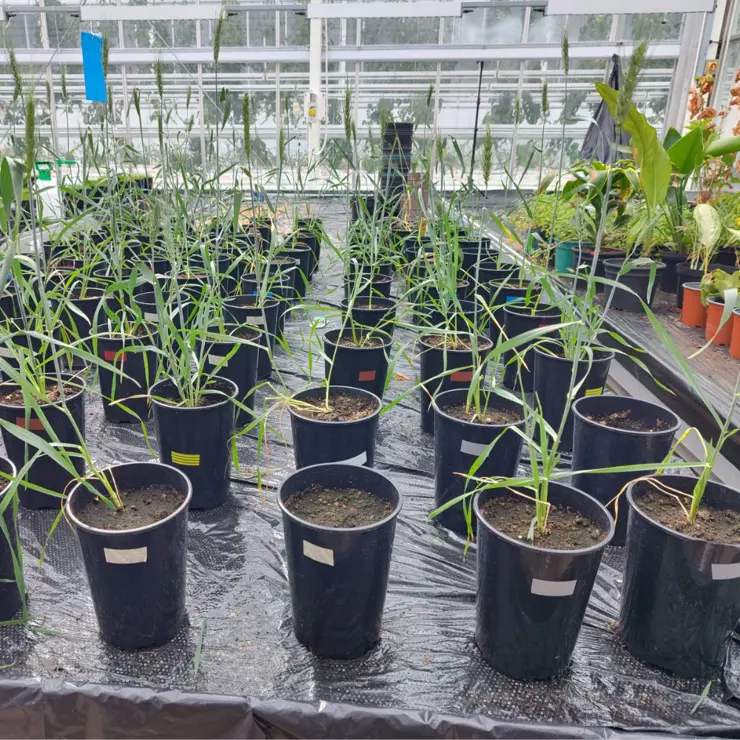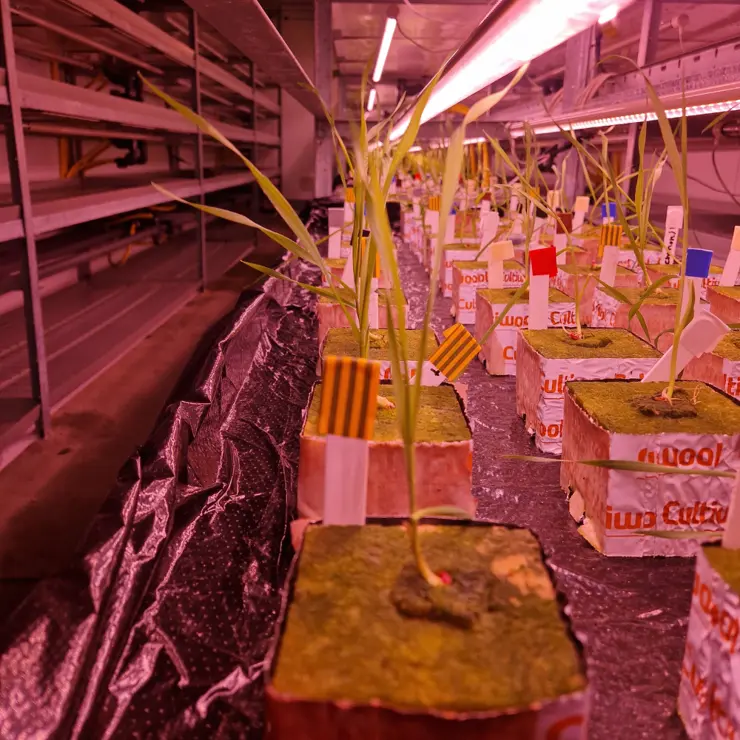Research led by Dr Alejandro Perdomo Lopez, in collaboration with Reaseheath College and University Centre, is addressing the challenge of food insecurity in the face of climate change.
The study, funded by the PACT Institute, aims to improve photosynthesis in crops, to boost edible biomass (yield) and resilience, with a particular focus on growing wheat.
The project explores the potential and nutritional benefits of using hydroponic (soilless) and vertical farming (stacked, controlled environments) methods for growing wheat, a crop that has not yet been widely tested in these systems. Dr Perdomo Lopez explained:
"My research aims to enhance photosynthetic efficiency in crops, increasing their edible biomass and resilience to climate change. I also seek to bridge knowledge gaps in photosynthesis research, crop yield, and innovative systems, using a whole-plant approach to improve nutritional content."
Early results suggest promising outcomes for hydroponic wheat cultivation. Plants grown hydroponically produced more tillers. This showed the potential for higher grain yields. Also, differences in plant height across various wheat types, especially in vertical farming systems provide key insights for future research.
The research also revealed consistent differences in leaf chlorophyll levels among the wheat varieties across both growing systems. These levels serve as a vital indicator of the plants' photosynthetic performance (health), contributing to a deeper understanding of crop health in alternative farming systems.
Speaking on the broader implications of his work, Dr Perdomo Lopez said:
"This research is crucial for addressing the challenge of producing enough nutritious food for a growing global population in the face of climate change."
— Dr Perdomo Lopez, Lecturer in Plant Biology
The project further explored the potential of growing dwarf wheat varieties in urban environments, which could help address global micronutrient deficiencies and improve food security in densely populated areas.
Looking ahead, Dr Perdomo Lopez plans to publish a paper highlighting the key findings of his research. He is also seeking to establish partnerships with companies involved in vertical farming and explore joint funding opportunities for future projects.




